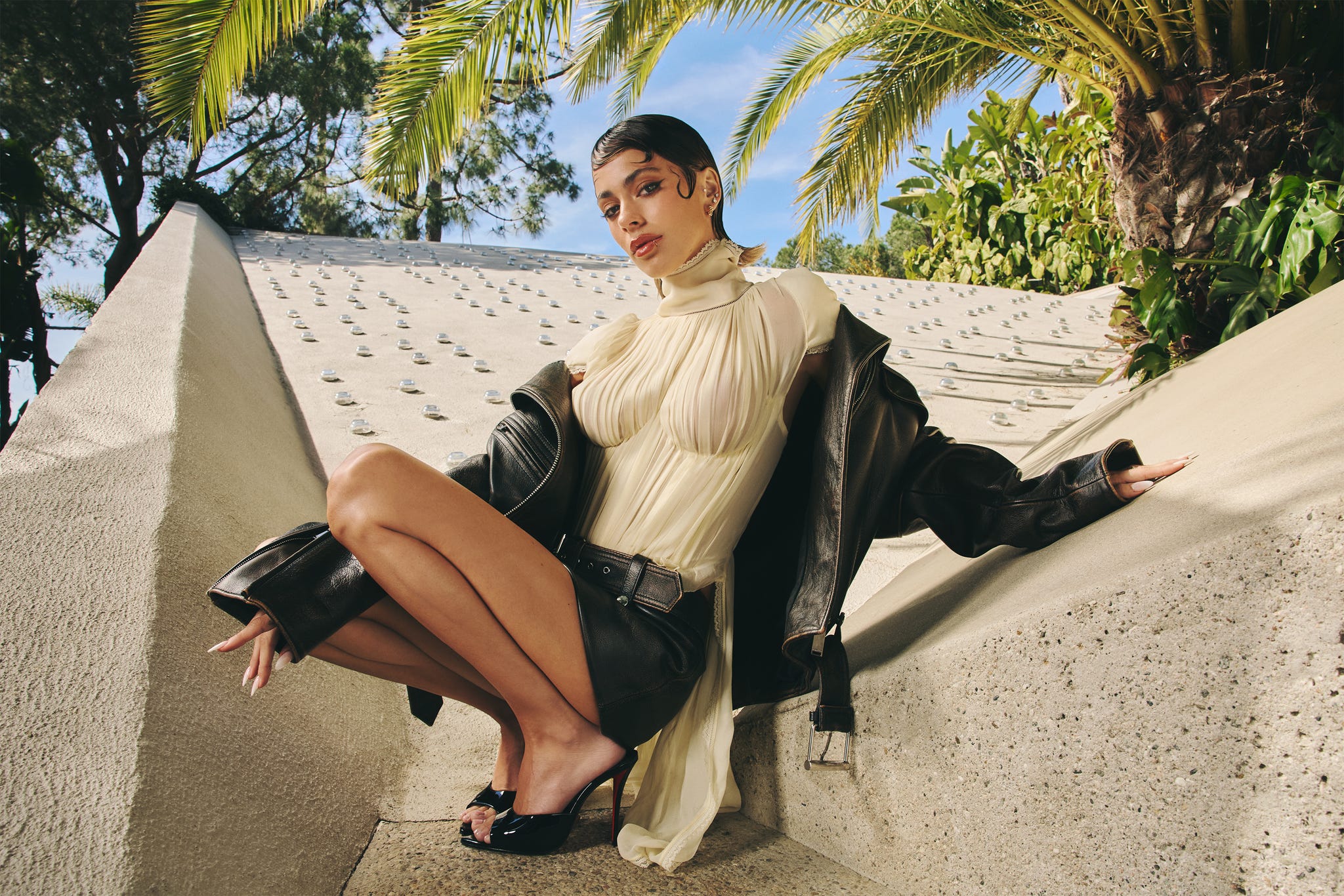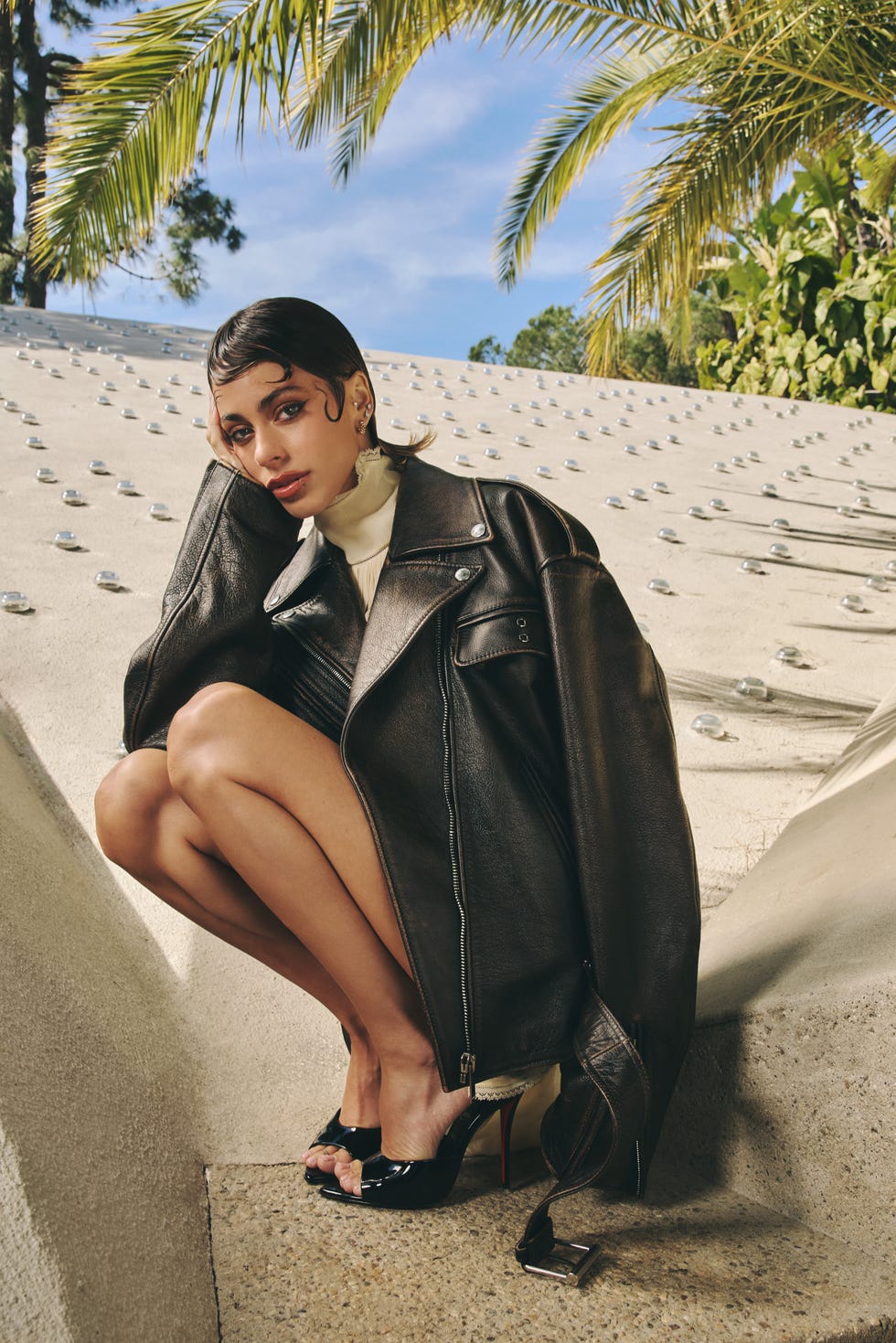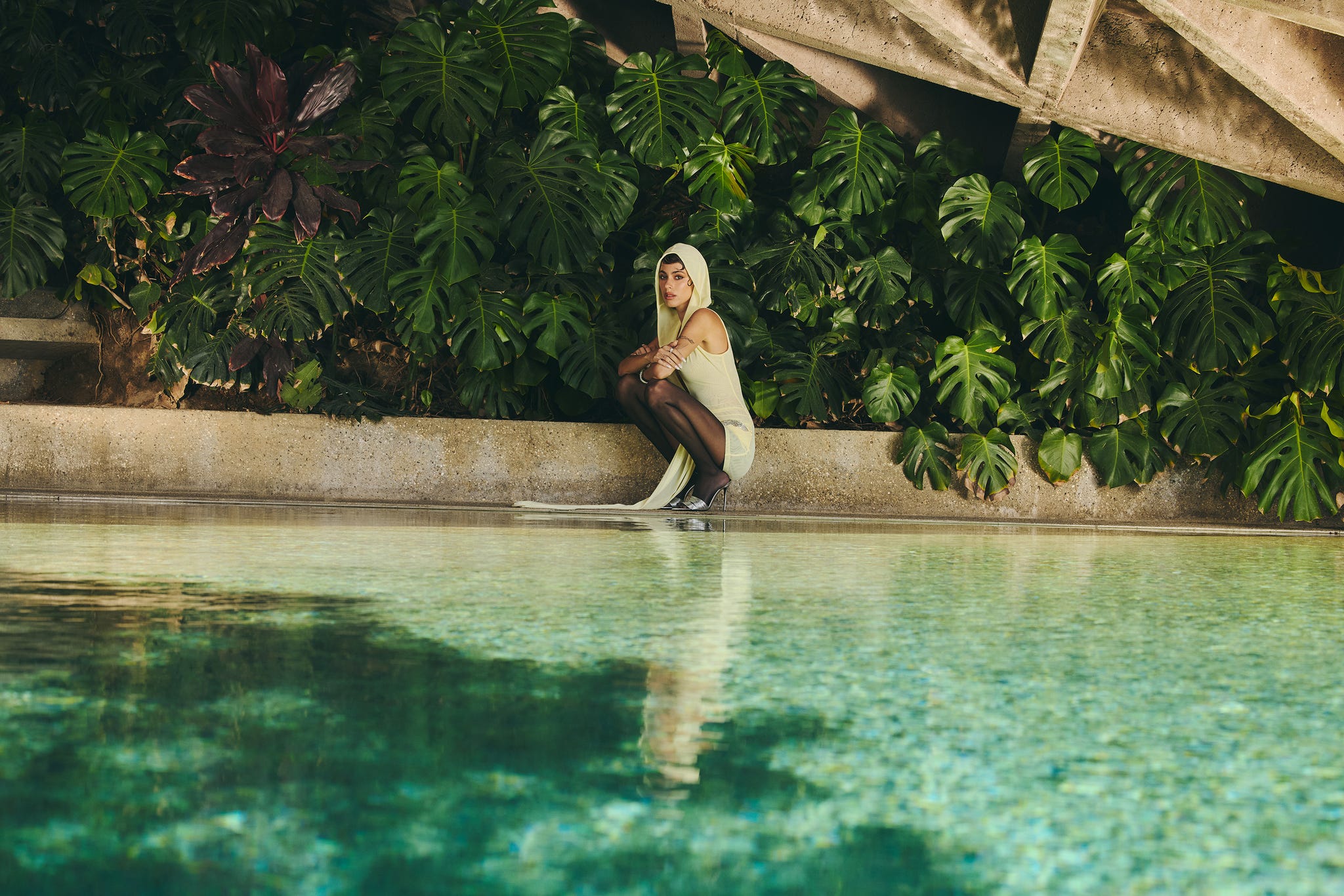How Tini Evolved From Her Disney Star Past to Become a Latin-Pop Icon


Jacket, top, skirt, McQueen. Earrings, Cartier. Mules, Christian Louboutin.
There was a time when the Argentinian Latin-pop sensation Martina “Tini” Stoessel believed a Disney princess ought to keep her tears to herself. Starting in 2012, a then 14-year-old Tini led the Disney Channel Latin America drama Violetta as the titular Violetta Castillo, a girl whose pop-star aspirations mirrored her own. With its echoes of Hannah Montana, the show blossomed into a global sensation, its influence stretching far outside her home of Buenos Aires. (As South African singer Tyla tweeted in January, “Violetta use to be my shiiiiiit.”) By the time Violetta aired its last episode in 2015, Tini had filmed three 80-episode seasons, and decided launching a solo music career was the natural next step. “I believe that it was as simple as following my heart,” she says. “What I felt when I finished Violetta was [the desire] to keep doing what I loved, but this time my way.”
Making music her way meant evolving, growing up, and making mistakes in public view. In the decade that followed, Tini built a solo career to become one of Latin America’s most popular musicians. As she pumped out tracks and performances, she learned to ignore her worsening mental health, putting on such a strong act that she nearly convinced herself she was thriving.
That facade fully shattered in 2024, with the release of her sixth studio album, Un Mechón de Pelo (“A Lock of Hair”). This new music—her “most personal album” yet—was not a saccharine meditation on self-love; it was an introspective, experimental saga of isolation and depression. In tracks such as “tinta 90” and “posta,” Tini reveals herself as a “secret depressive” and a victim of her own self-delusion, singing, “A princess doesn’t cry on television / But my acting was so believable / Even Tini believed it, for real / But Martina woke up, and she cares, for real.”
“Critics are always going to exist. What is more important for me is to be real and sincere with myself.”
Tini understands her fans aren’t entitled to intimate insight into her health, but she does believe she owes them honesty. (She cites artists such as Billie Eilish as having inspired her openness.) Now, no matter the naysayers—and there are plenty, she admits—Tini is looking toward the future with the goal of “absolute freedom.”
“I’m in a moment of realizing who I am and where I stand, and trying to find a middle ground between the life I had and the life I want to build,” she says. She’s six months into recording another album, one that, she says, reflects her search for freedom in its beats, lyrics, and visuals, and she’s also plotting a career-spanning tour that sounds like her own version of Taylor Swift’s Eras.
Later this year, she’ll also star in the Disney+ drama Quebranto, her first television series in 10 years. And regardless of what comes next, she’s already at peace from having shared her truth with the world. “Being able to transform feelings into music was part of my healing,” she says, “and I believe that sharing it was also part of my healing.”

Jacket, top, skirt, McQueen. Earrings, Cartier. Mules, Christian Louboutin.
Being part of something as giant as Disney, I always say that it was like my university....I now have the ability to solve things that, perhaps, if I hadn’t lived all that from the age of 14, maybe I would still be in the process of understanding what it means to be exposed, what it means to get onstage.
What was behind your decision not to feature any collaborators on Un Mechón de Pelo, as you have on previous albums?The decision to not have collaborators was because, for the first time in an album, I opened up my heart regarding very deep personal aspects. These were not generic songs; I was really talking about what was emotionally happening to me. It was such a personal matter that, well, the reality is there was nobody else who could tell that story.
What was the most challenging part of creating Un Mechón de Pelo, in terms of opening up about your mental health?The most difficult part was accepting [my mental health struggles] myself. I was not sincere with myself and with all the people who, in the end, consume any of my songs or hear me in an interview. I was not honest with all those people and simply smiled and said that everything was fine when I was totally devastated on the inside. I didn’t want to end up in a worse situation. I felt that [what would be] most honest from me [would be] not going onstage anymore, not keeping on and keeping on and keeping on until, at some moment, it would break for the sole fact of pretending that everything was fine. I think that it wasn’t fair to me, nor to the people.
Not all audiences have responded positively to the vulnerability in Un Mechón de Pelo, with some accusing you of using your mental health struggles for clout. How have you dealt with such criticism, given that you’re sharing something so raw and personal?In the end, critics are always going to exist. What is more important for me is to be real and sincere with myself. All the bad things I read didn’t surprise me. I also understand that there are a lot of people who maybe don’t understand what one means by “mental health.” Maybe there are people who don’t understand what I mean by “exposure.” Maybe there are people who don’t understand what I mean when I talk about anxiety. I understood that, [while still] being sure of what was happening to me.

Hooded mini dress, David Koma. Cuff, ring, Cartier. Tights, Falke. Mules, Giuseppe Zanotti.
Once I put that album out, I realized how necessary it was for me to have done it. And I felt proud to have done it. I’m not going to lie to you, there are comments that hurt. There are comments that, sometimes, you would like to sit down and talk with [the person making] that comment and find a middle ground. You can’t; that’s impossible. You can’t control everything that people think. The biggest challenge was to encourage myself to put it out anyway. And what happened, when I put it out, is that I didn’t regret it at all.
Last year, Latin music was the fastest-growing streaming genre in the U.S. How does it feel to have watched its popularity grow on such a global scale—and to know you’ve been a contributor to that growth?It makes me very, very proud, because I feel like we have a lot to give. And I think the most beautiful thing, beyond that, is to see how your language doesn’t matter, and it doesn’t matter where you come from. Music confirms, again, that it is capable of uniting the least expected people.
Hair by Lacy Redway for Tresemmé; makeup by Alexandra French at Forward Artists; manicure by Ginger Lopez at Opus Beauty; produced by Petty Cash Production.
A version of this story appears in the May 2025 issue of ELLE.
elle





%3Aformat(jpg)%3Aquality(99)%3Awatermark(f.elconfidencial.com%2Ffile%2Fbae%2Feea%2Ffde%2Fbaeeeafde1b3229287b0c008f7602058.png%2C0%2C275%2C1)%2Ff.elconfidencial.com%2Foriginal%2F506%2Fd3b%2F97a%2F506d3b97a8e329fb7355504e1060218f.jpg&w=3840&q=100)